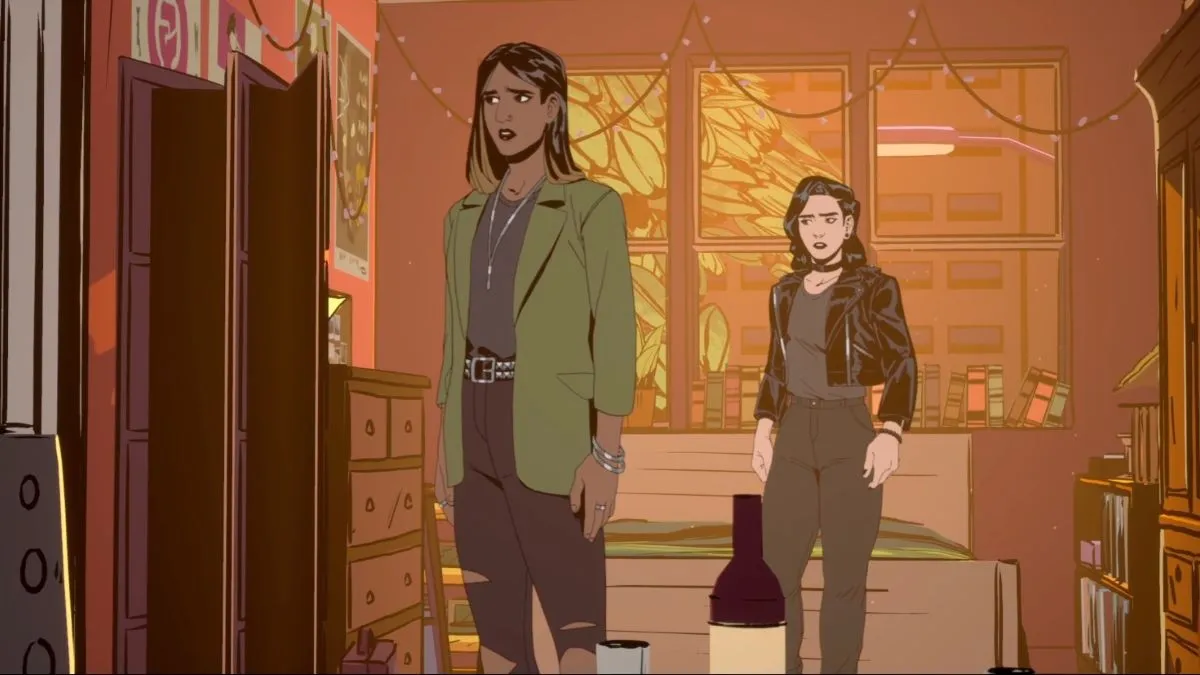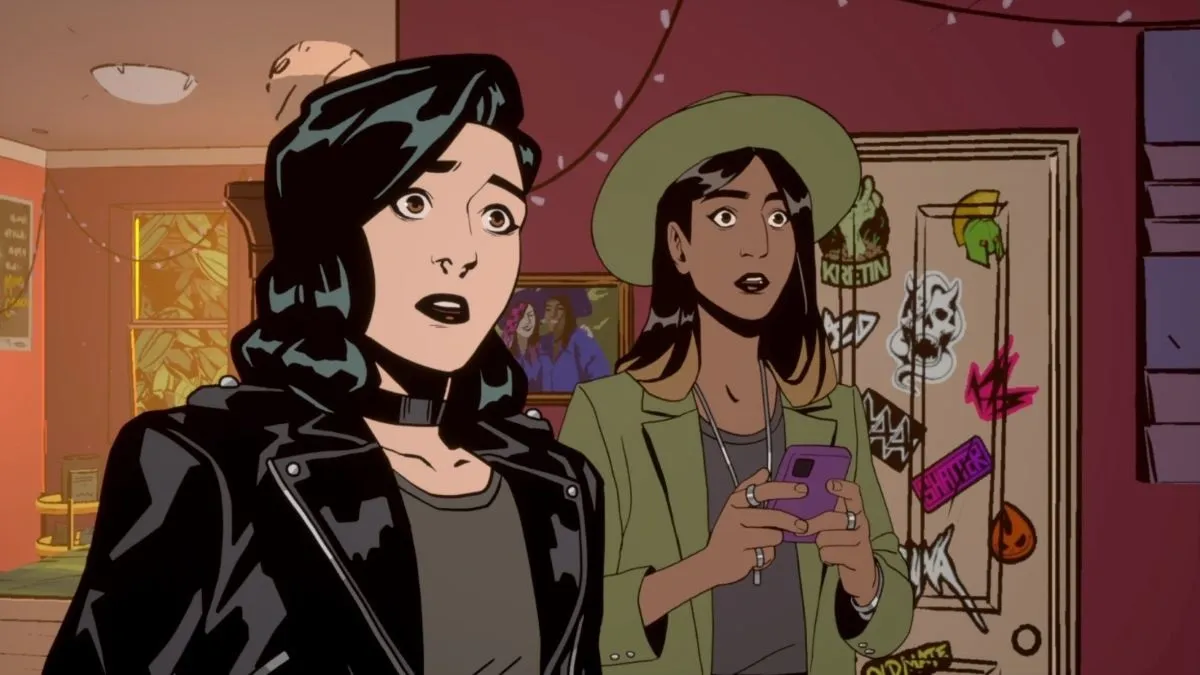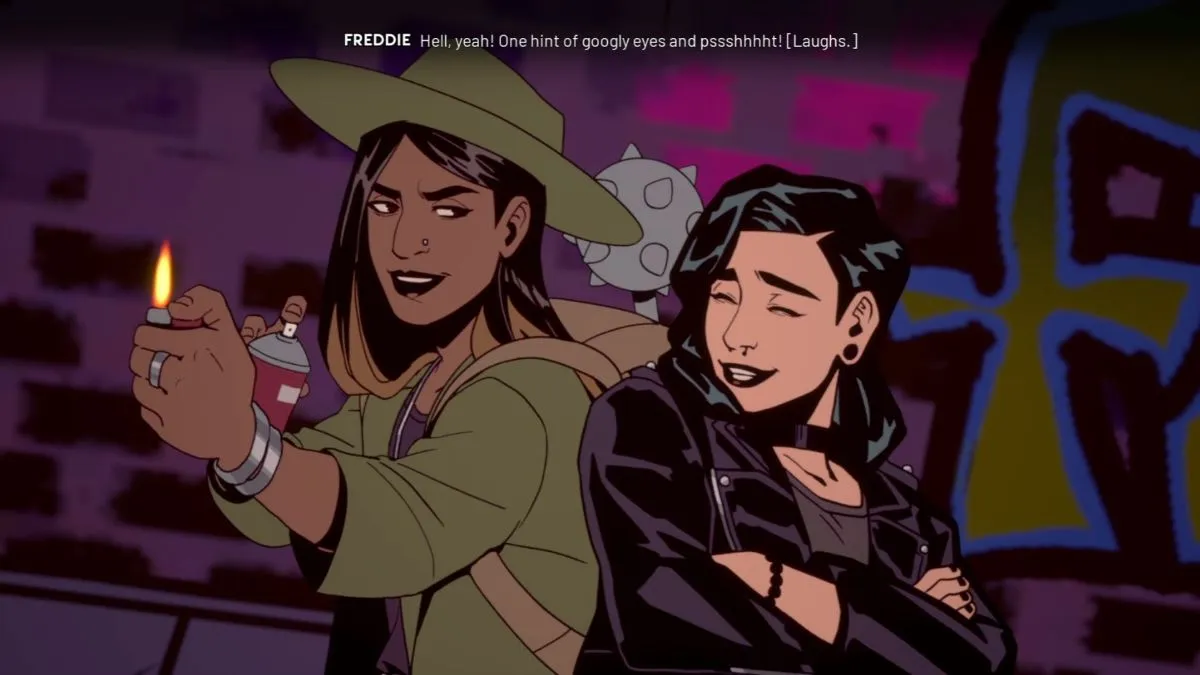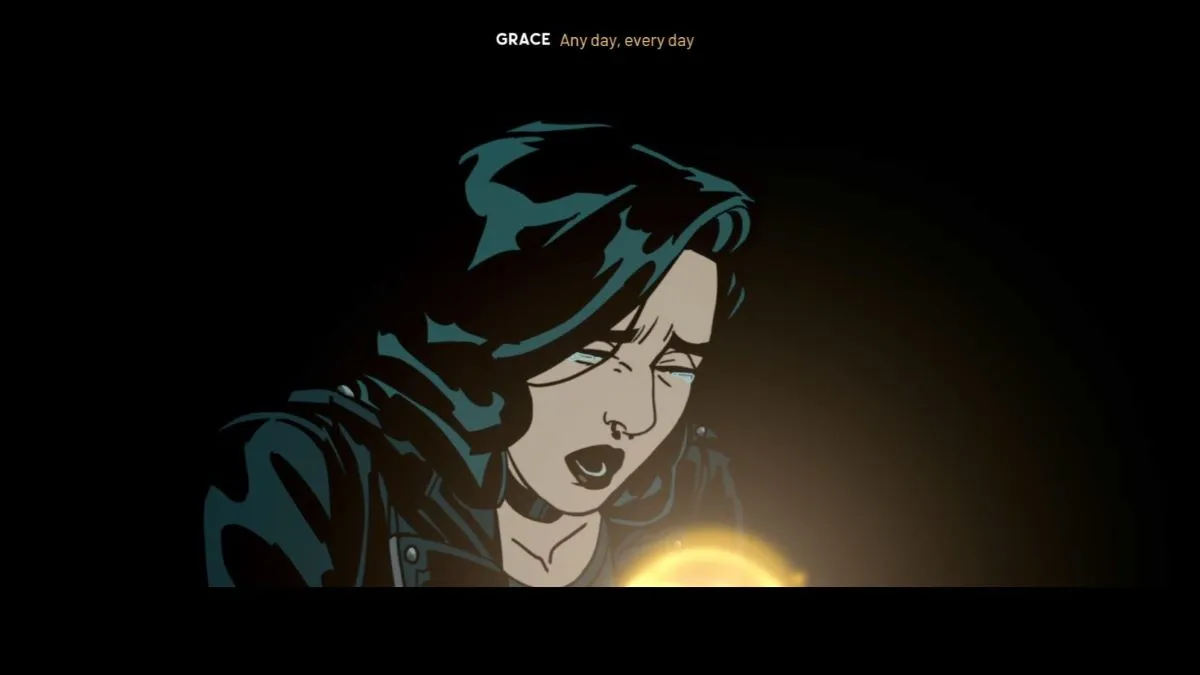This article contains spoilers for Stray Gods: The Roleplaying Musical and The Walking Dead: Season One in its discussion of portrayals of friendship and their influence on choice-making in video games.
Damn it, Freddie. I was just trying to do the right thing… I don’t often feel any compunction about being a horrible person in games. Sure, I’ll usually play nice, but needs must, and my character’s needs take precedence over those of a dehydrated pile of pixels any day of the week. I’ve run down processions of Hare Krishna, fed sawdust to starving populations, and crushed a dying man’s head with a saltlick. Yet none of those acts of violence — morally ambiguous if not outright evil — have given me quite as much reason to pause as the relatively simple act of being a bad friend in Stray Gods: The Roleplaying Musical.
I can’t get that conflict out of my head because I thought I was doing an unambiguously good thing, but also that I was making that choice entirely of my own volition. It’s not like The Walking Dead: Season One, where I brutalized Larry out of a sense of self-preservation, or Frostpunk, where I was forced to make impossible choices to keep civilization going. No, what I did in Stray Gods was bring my best friend back to life, not because of some imperative of the game, but because of the love that so clearly existed between Grace and Freddie.
A lot of stories complicate friendships. It’s easy to understand why; conflict is a fundamental storytelling precept, and what better way to manifest that than to throw obstacles in the way of people who choose each other. That’s not universal, of course. Good Omens chronicles the utterly delightful friendship between the angel Aziraphale and the demon Crowley. Life is Strange celebrates the connection between Max and Chloe in the face of an existential threat.
While you can get that in new friendships — it certainly is the case for the one between Robin and Ramy in Babel — it’s much more difficult to achieve than through an acknowledgement of shared history. That’s part of why I never felt as invested in Life is Strange: True Colors as the earlier games, or even, to bring me back on track, Grace and Apollo in Stray Gods. There’s an easy camaraderie between Grace and Freddie that simply doesn’t exist with the other characters. Pan dissembles from the start; Apollo needs to love himself before he can love anyone else; Persephone is perpetually stand-offish. But with Freddie, everything feels more honest.
They banter, they reminisce, and even though there’s a clear power imbalance between them thanks to Grace’s newfound godhood (if you want to call it that) they make plans. It’s even more than that, though. One part is that there’s a profound sense of a shared history between the two characters, and that always helps to sell the fiction; they’re in a band; they’ve been friends since at least high school. These nuggets inform how we understand their connection. The other part is that lead writer David Gaider and his team show us the depths of their dedication to each other. Knowing her love of knowledge, Grace takes Freddie to the Reliquary, where mortals are not allowed to be. And when Grace goes to confront Medusa, Freddie backs her up with a mace and a makeshift flamethrower. They will do anything for each other, break any rules, make any sacrifices.
That’s why I wasn’t surprised when Freddie stepped in to save Grace from the Furies. The rules of narrative say that’s the most reasonable, logical thing to happen. Freddie had to die.
Character deaths are easy. They can elicit an emotional response in the reader or viewer or player almost by default, but whether they’re shocking or cathartic or heartrending depends on how the death plays out. Following up on death is the hard part, and Stray Gods absolutely nails the inherent messiness of that. Act III of the game sees Grace and Persephone traveling to Hades, ostensibly to find a way to contact the Fates, but Grace also wants to see Freddie again, to bring her back from the dead.
When the opportunity arises, things get messy. Unlike Grace, Freddie doesn’t regret her choice; she leapt in front of the knives fully cognizant of her actions and their inevitable consequences. She says she’s at peace. But that can’t be right. How can she not regret her sacrifice? How can she not be suffering from the same pain as Grace? How can she not want to be with her best friend again, no matter the cost? Ultimately, I can’t believe that she is so magnanimous, so zen; I can only believe that she’s hiding her true feelings in the hopes of protecting Grace. Again. And so, I do what I must, what I believe to be right based on everything I’ve seen of these two so far. I give up Grace’s immortality to bring Freddie back.
That’s the thing I can’t stop thinking about. The writers here clearly know how to give a decision weight, and it’s not by making us choose between a friend and the world or good and evil. The world is too big, and moral objectivism is less interesting than moral relativism. The focus falls to the outcome of Grace’s decision — of my decision.
It didn’t go as planned. All I wanted was for the two of them to be happy. And I thought that meant making sure they could both continue. I should have realized, though, that Freddie wasn’t Pan. She had only ever told Grace what she needed to hear, not what she wanted to hear. That honesty also means that Freddie can’t just pretend that everything is okay in the aftermath. Death has changed her. Immortality is terrifying. In becoming The Last Muse, she has also become a target. After a break like that, there’s no going back.
I can’t help but feel like I should have foreseen that. But I didn’t, and it’s stuck with me ever since that maybe I should have chosen differently. Maybe Freddie would be at peace. Maybe Grace would find a new way forward. I could replay Stray Gods and find out, but I don’t want to because the story has already moved past that point. Freddie and Grace have admitted that their feelings run deeper than just friendship, but they’re also wary of the things that have changed and how they might hurt each other again. In their efforts to find a new way forward, I’m reminded irresistibly of the Japanese art of kintsugi. What was once beautiful was broken — but with time and love and effort, it can be beautiful again.
KEEPI READING: All Voice Actors in Stray Gods: The Roleplaying Musical









Published: Aug 28, 2023 02:12 pm